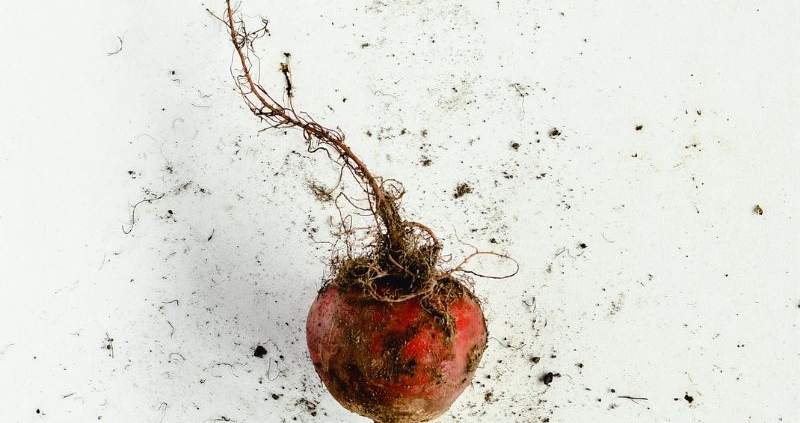Nutrition: the root cause of male infertility?
Infertility affects an estimated 15% of couples globally and in approximately half of those couples experiencing difficulties conceiving, part of the problem will lie with the male. However, the burden of fertility treatment still resides mainly with women. The perception that assisted reproductive technology, particularly Intracytoplasmic sperm injection (ICSI), has ‘solved’ male fertility means that male infertility research has often been neglected.
However, as leading fertility nutritionist Melanie Brown believes, a shift in thinking about male infertility could greatly improve treatment outcomes or even increase the chance of natural conception.
“Often men feel, or are even told, that if they have poor quality sperm, there is nothing they can do about it. But that’s just not the case.”
Melanie has an MSc in Nutritional Medicine and over twenty years of working in fertility and preconception nutrition, and she is especially interested in supporting male infertility.
“The focus is almost exclusively on women and their fertility, but intervention should probably come with men when they are at school. Young men should be given more nutritional and lifestyle education about protecting their fertility in their late teens and 20s.
“Obesity, for example, isn’t always an open and shut case as it doesn’t account for diet. You may have an obese man eating a very rich, indulgent diet with too much red wine, pasta and potatoes, but it is also a varied diet, and he’s still consuming his vegetables and olive oil. On the other hand, you can have an obese man just eating lots of beige, ultra-processed fast food, which is very bad for sperm quality.”
The pursuit of perfection and fertility
In an ironic twist, known as the Mossman-Pacey paradox after the two UK scientists that discovered it, the human male is seemingly the only species that make themselves less fertile while trying to look more attractive to the opposite sex.
“Lifestyle changes in recent years have been disastrous for sperm quality,” Melanie explains. “For example, lots of young men are now using hair growth medication to halt male pattern baldness, and these products are now readily available and heavily promoted. But they can be very damaging for sperm.
“Steroid use is also becoming a significant problem for many young men, which could actually finish off their testicles for good! Even protein powders contribute as they can contain a minimal amount of steroids.”
And this focus on women over their male counterparts extends throughout the fertility treatment journey. “My thesis was on the impact male obesity has on IVF outcomes as there is so much research into female obesity and women being told they must be a specific BMI for IVF, but male BMI is not considered. Furthermore, most men don’t even have their testicles examined before IVF to check if they have a varicocele or if they look slightly smaller than normal, whereas women are prodded and poked endlessly with examinations.
“Often, this is because ICSI allows men to circumvent specific issues. If it’s left further down the fertility treatment pathway, it’s too late, but the fact is that a good diet and lifestyle changes can help sperm.”
Lifestyle factors and male infertility
Pollution may be a big factor; a Danish study published last year looking at pollutants, including BPA, in semen and their relationship with deteriorating sperm quality found that the men aged between 20-30 in their study had up to 100 times the safe limit of various pollutants and this correlated with their sperm quality.
“There are some steps you can take to mitigate exposure to these harmful chemicals, such as using a BPA-free drinking bottle, never heating your food in plastic, eating some organic foods – look at The Dirty Dozen and the Clean Fifteen lists on the internet – and avoiding parabens in toiletries.
“Covid has also played a role. There has been a drop in activity levels since the pandemic, but exercise is critical for testosterone metabolism. Although it has to be the right exercise: cycling is fine but respect your testicles!
“Nutrition is the big one, though. I find a lot of my research from animal studies, as vets and farmers know how valuable sperm is – you wouldn’t believe how much money a vial of good bull sperm costs now! Breeding animals have the best nutrition to ensure high-quality sperm, but this research hasn’t been extrapolated to the human male.”
Small steps to make significant changes
Melanie explains how she typically works with male clients. “I see very few men who come off their own bat – usually, they are part of a couple or referred by urologists I work closely with.
“I explain that it’s a 12-week project – as that’s how long it takes sperm to regenerate – and set them strategies and goals, and then they are typically highly motivated.
“It’s often about making tweaks – small or large – to their regular diet and routine. So, breakfast may remain the same, but I advise them to add some berries. If they don’t want to take a packed lunch to work, I might say go to Pret rather than Subway, choose a sandwich with egg, avocado or rocket, and opt for nuts rather than crisps. The basis of a good sperm diet is The Mediterranean Diet, full of fresh colourful un-processed foods. I also recommend some carefully selected supplements. However, too many supplements at too high amounts can also be very bad for sperm. Diet is key.
Male infertility can often be an isolating experience, so this is an opportunity for teamwork. “If you present as an infertility couple, the emphasis shouldn’t be on who’s at fault. Making these important changes to improve sperm and egg quality before fertility treatment can be a great bonding experience before you move to the next stage.
 “Male infertility is often the canary in the coal mine for men’s health,” Mel believes. “If there are infertility problems, then a bigger issue should probably be addressed.”
“Male infertility is often the canary in the coal mine for men’s health,” Mel believes. “If there are infertility problems, then a bigger issue should probably be addressed.”
For more advice on anything fertility and nutrition-related, contact Mel directly to make an appointment or to find out more. Call +44 (0) 203 263 6025 or email us on admin@ariafertility.co.uk for advice on male infertility treatments.
For more information on the individual practitioners and organisations offering support, advice, and information to those undergoing fertility treatment, please visit our Support Hub.

